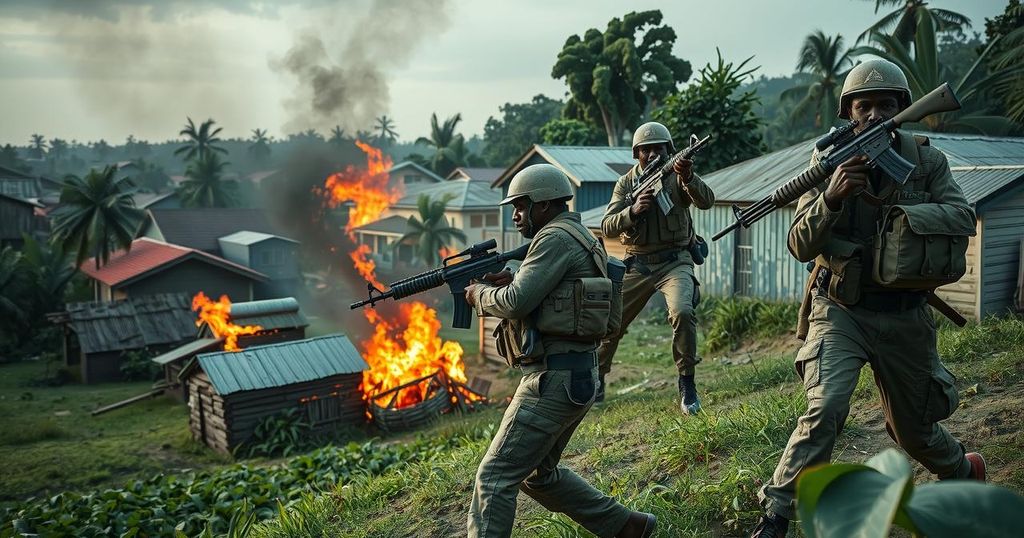M23 Rebels Capture Strategic Town in Eastern Congo, Escalating Conflict

M23 rebels have seized the town of Masisi in the Democratic Republic of Congo, escalating their territorial control and prompting concerns over a humanitarian crisis. The DRC accuses Rwanda of supporting these rebels to exploit minerals, leading to legal actions against international companies. Diplomatic discussions between DRC and Rwanda to negotiate peace have stalled, complicating the situation further.
The March 23 Movement, widely known as M23, has successfully taken control of Masisi, a significant town in North Kivu province within the Democratic Republic of Congo. This strategic acquisition, reported on Saturday, occurred amidst ongoing conflicts with the national army and pro-government militia forces. Masisi, with an estimated population of 40,000, is located merely 50 miles from Goma, the provincial capital, which serves as a vital refuge for many displaced individuals.
The M23’s advance follows the capture of Katale just two days earlier, indicating a broader trend of violence and territorial gains by the rebels in the eastern regions of Congo since 2021. This ongoing conflict has resulted in the displacement of hundreds of thousands, leading local leaders to issue urgent warnings regarding a burgeoning humanitarian crisis. Moreover, the Democratic Republic of Congo has accused Rwanda of utilizing M23 to exploit its mineral wealth, specifically gold, cobalt, and tantalum, although Rwanda categorically denies these allegations.
In the context of these tensions, the DRC has taken legal action against Apple over the usage of so-called “blood minerals,” leading to the company’s decision to cease sourcing certain materials from both nations. Further complicating matters, talks aimed at addressing the conflict between DRC President Felix Tshisekedi and Rwandan President Paul Kagame were abruptly halted on December 15 due to differences regarding a proposed peace framework, casting doubt on any potential resolutions in the near future. The situation remains precarious as the international focus on central Africa appears to wane amidst global political changes.
The ongoing conflict involving the M23 rebels and the Democratic Republic of Congo has deep historical roots, with ethnic and territorial disputes at its core. The M23 movement originated in 2012, enabled in part by external influences and local grievances regarding governance and resource allocation. The eastern regions of Congo have been particularly vulnerable to violence, characterized by a lack of state control and the proliferation of armed groups. The humanitarian crisis is exacerbated by exploitation of natural resources, with accusations that neighboring countries are complicit in sustaining these groups. The geopolitical dynamics are further complicated by international companies’ involvement in the mineral trade, raising ethical concerns regarding their practices and the sourcing of materials from conflict zones.
In conclusion, the recent escalation of territorial gains by the M23 rebels in North Kivu highlights the persistent instability in the eastern Democratic Republic of Congo. Accusations against Rwanda for supporting these rebels and the ensuing humanitarian crisis underscore the urgency for a comprehensive peace strategy. Additionally, the disruptions in diplomatic discussions between DRC and Rwanda raise questions about the future of peace efforts in the region. It remains to be seen how external political factors will influence this conflict moving forward.
Original Source: www.gzeromedia.com







